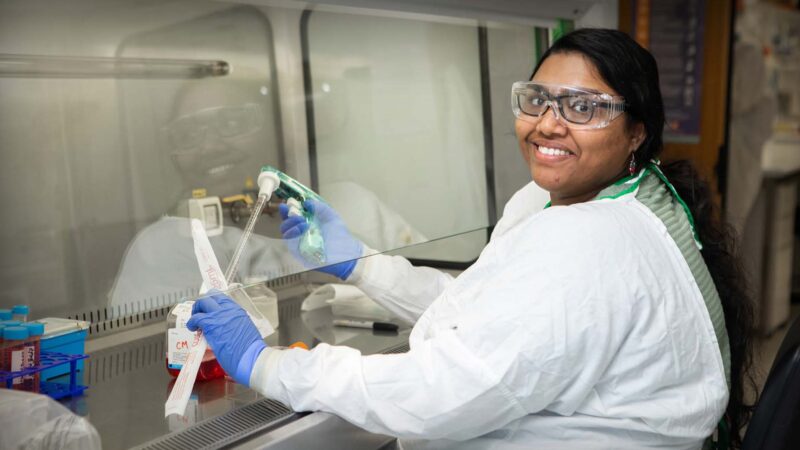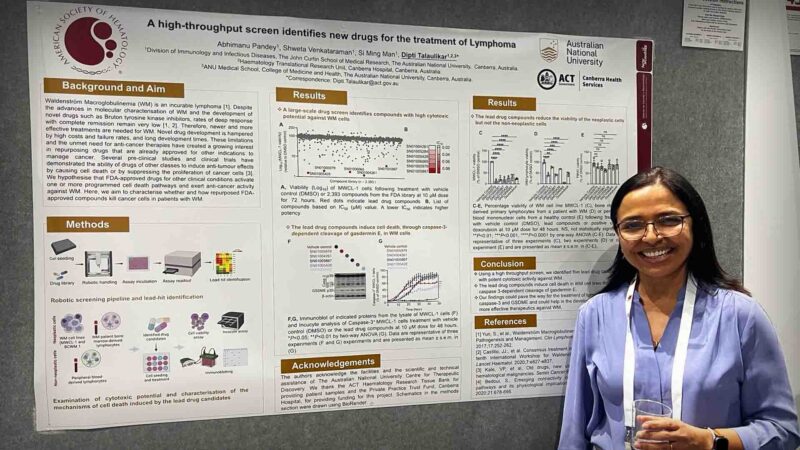DNA REPAIR ON THE FANCONI ANAEMIA PATHWAY
Associate Professor Wayne Crismani
Laboratory Head, DNA Repair & Recombination
St Vincent’s Institute of Medical Research,
Melbourne, Australia
RESEARCHER PROFILE
Filmed in Melbourne, Australia | August 2025
Associate Professor Wayne Crismani is an internationally recognised expert in DNA repair, with a particular focus on Fanconi anaemia (FA)—a cancer-predisposition and bone marrow failure syndrome marked by extreme sensitivity to DNA damage. Based at St Vincent’s Institute in Melbourne, he leads a research program dedicated to understanding the genetic, cellular, and reproductive consequences of FA. He is currently supported by a Victorian Cancer Agency Mid-Career Fellowship and funding from the National Health and Medical Research Council.
His career spans academia and industry across Australia, Europe, and the United States. He has contributed to several advances in FA genetics, including the identification of new functions of FA genes, particularly in reproduction, development of isogenic cell models, and use of high-throughput functional and screening assays. He has also demonstrated that FA is under-diagnosed in Australia, which has major consequences for these individuals and for the public healthcare system. His research has been published in top-tier journals and underpins several patents, including technologies that have been successfully licensed.
Associate Professor Crismani also leads multidisciplinary studies investigating fertility and cancer risk in individuals with FA. These include the first systematic study of biological parenthood and assisted reproductive technologies in adults with FA, and efforts to identify early biomarkers of oral cancer in this high-risk group. His work is conducted in close collaboration with scientists, clinicians, fertility specialists, and patient advocates. He co-founded Fanconi Anaemia Support Australasia with a group of families in 2019 and continues to organise scientific and social events for the FA community.
He works with international FA registries, research consortia, and the Fanconi Cancer Foundation to ensure research findings inform real-world care. His program bridges molecular biology, reproductive health, and translational science, with the goal of improving health outcomes for people with FA and genetic conditions.
Source: Supplied
You Might also like
-
Nanoparticles & microparticles to combat antimicrobial resistance
Dr Anjana Jayasree is an emerging research leader in biomaterials, tissue engineering and nanotechnology, recognised internationally for her innovative work on antimicrobial nanoparticles and regenerative therapies. A Postdoctoral Research Fellow at The University of Queensland, she operates at the intersection of materials science, drug delivery and cellular biology, developing advanced metallic-based nanotechnologies to improve both human and animal health outcomes. Her expertise spans nanoparticle synthesis, cell–material interactions, and the design of sophisticated in vitro models to investigate soft-tissue integration, osseointegration, angiogenesis and biofilm formation.
-
Pregnancy in women with chronic kidney disease
Professor Shilpanjali Jesudason is an academic nephrologist and Head of Department at the Royal Adelaide Hospital’s Central Northern Adelaide Renal and Transplant Service, South Australia.
From 2017-2020, she was the Clinical Director of Kidney Health Australia, the peak body for patients with kidney disease. In this role she developed a passion for advancing kidney disease education in primary care.
-
Lymphoma, Myeloma and Genomics
Professor Dipti Talaulikar is a clinical and laboratory haematologist with expertise in genomics, working at Canberra Health Services, and Professor at ANU. She has a clinical and research interest in lymphoma, myeloma and genomics, and has authored close to 100 peer reviewed papers, including several clinical guidelines that have had a significant impact on clinical practice.



